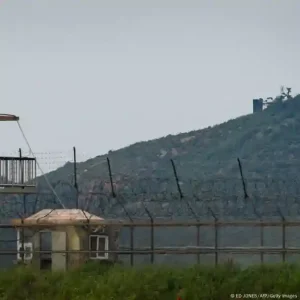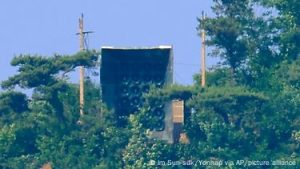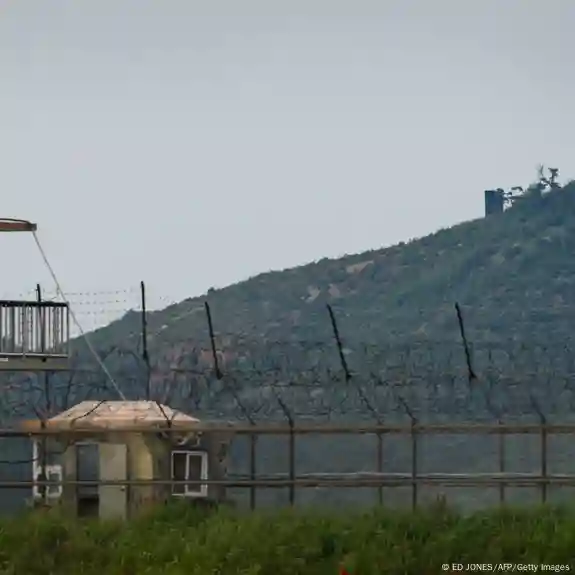Pyongyang’s move to take down its propaganda loudspeakers comes days after Seoul removed its own sound equipment in a bid to ease tensions on the peninsula.

South Korea’s military said on Saturday it had noticed North Korean troops dismantling some of their propaganda loudspeakers in parts of the border area.
The action is one of the first reciprocal steps from Pyongyang since President Lee Jae Myung took office in June and began efforts to reopen talks with the North, including removing the South’s own propaganda speakers.
What has North Korea done at the border?
Seoul’s Joint Chiefs of Staff (JCS) said the dismantling began on Saturday morning in certain sections along the front line.
“The South Korean military has detected North Korean troops dismantling propaganda loudspeakers in some parts along the front line from this morning,” the JCS said in a statement.
“It remains to be confirmed whether the devices have been removed across all regions, and the military will continue to monitor related activities,” the statement added.
Officials said it was not immediately clear how many loudspeakers had been taken down.
North Korea has not confirmed the reports. Pyongyang, which is highly sensitive to outside criticism of its leadership and ruler Kim Jong Un, has not issued any public comment on the matter.

In June, Seoul halted its own broadcasts as a “practical measure” to help ease tensions, prompting North Korea to stop theirs the next day.
The loudspeakers had been used by South Korea to play K-pop music and news reports across the border, while Pyongyang’s devices emitted unsettling noises that South Korean residents said were a constant nuisance.
How have relations shifted under Lee Jae Myung?
Lee’s administration has reversed the hard-line approach of his conservative predecessor, Yoon Suk Yeol, who had authorised the broadcasts in 2024 in response to trash-filled balloons sent south by the North.
The liberal president has also asked civic groups to stop sending anti-North leaflets across the border and has said he is willing to meet Pyongyang’s leadership without preconditions.
Relations between the two Koreas had reached one of their lowest points in years before Lee’s election.
The North had drawn closer to Moscow after Russia’s invasion of Ukraine, while the South had strengthened ties with Washington and Tokyo.
The two countries remain technically at war because the 1950-53 Korean War ended in an armistice rather than a peace treaty. Cross-border loudspeaker campaigns have been used repeatedly over the years during periods of heightened tension.
Edited by: Karl Sexton
DW News


